Fanta Wilane Faces the Climate Crisis
We documented Fanta's remarkable resilience and determination as she navigates the challenges of environmental instability. Originally published on myAgro.org.
6 min read
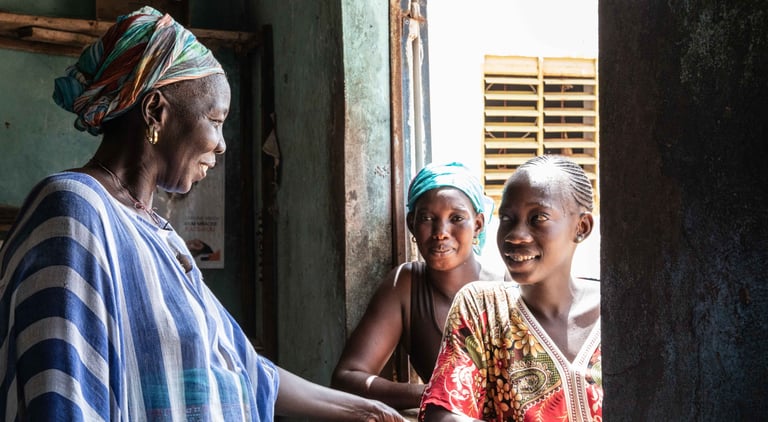

Fanta Wilane, a Senegalese smallholder farmer, mother, and entrepreneur, faced a substantial decline in crop production last season. From half a hectare of land, she managed to produce only one bag of groundnuts in the 2021 season. This marked a significant departure from her usual ability to grow sufficient food to sustain herself and her family for the entire year. Concerned about the low yield, Fanta recognized that she had no option but to take proactive measures.
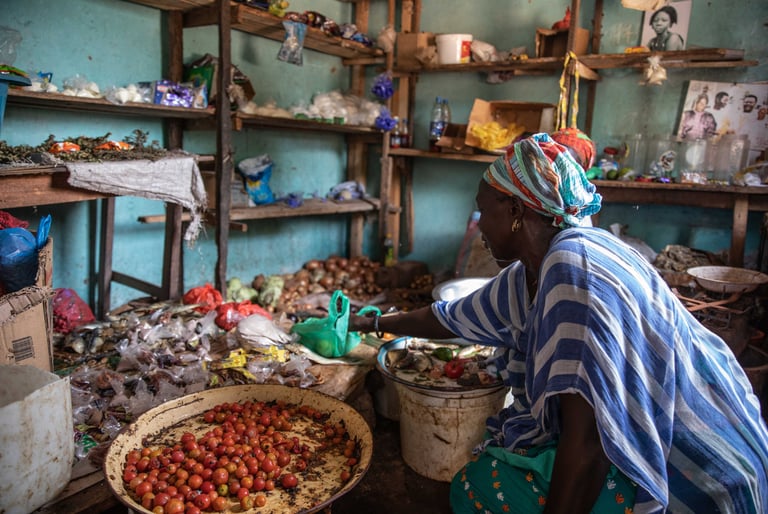

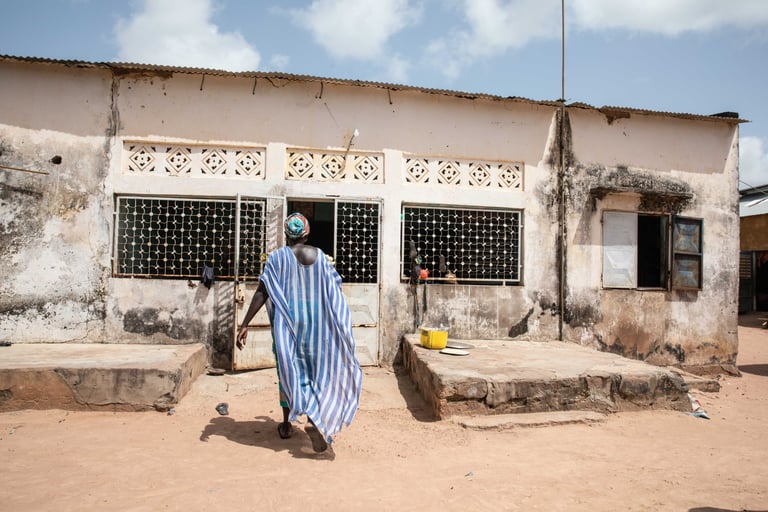

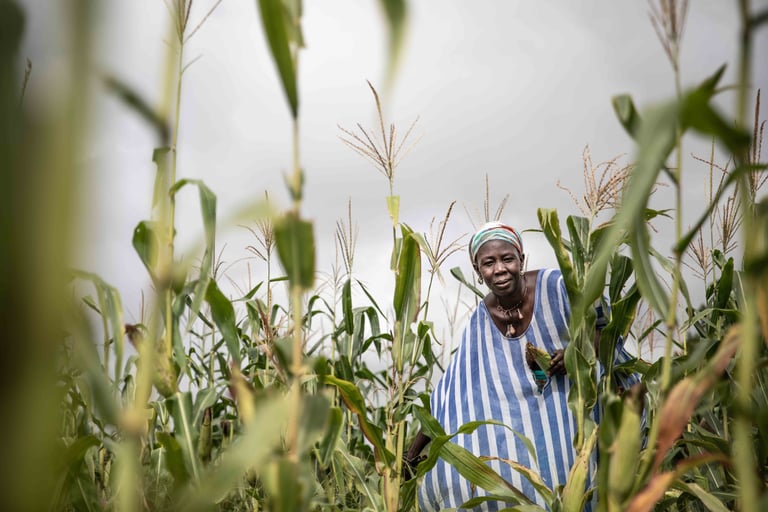

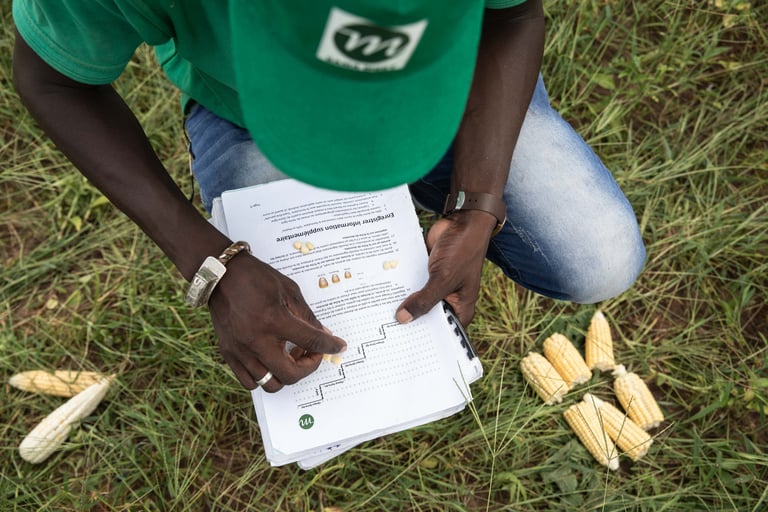

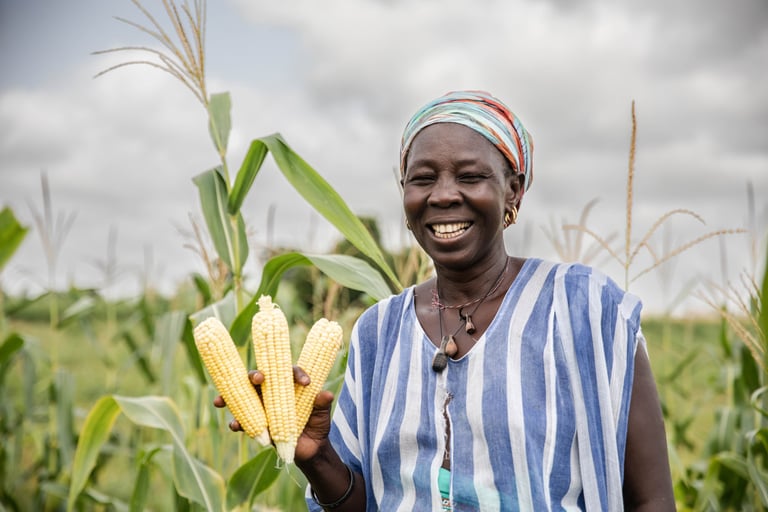

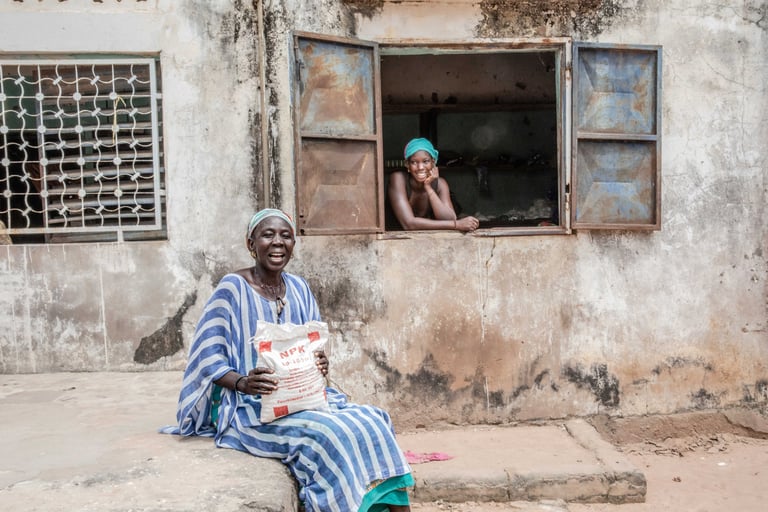

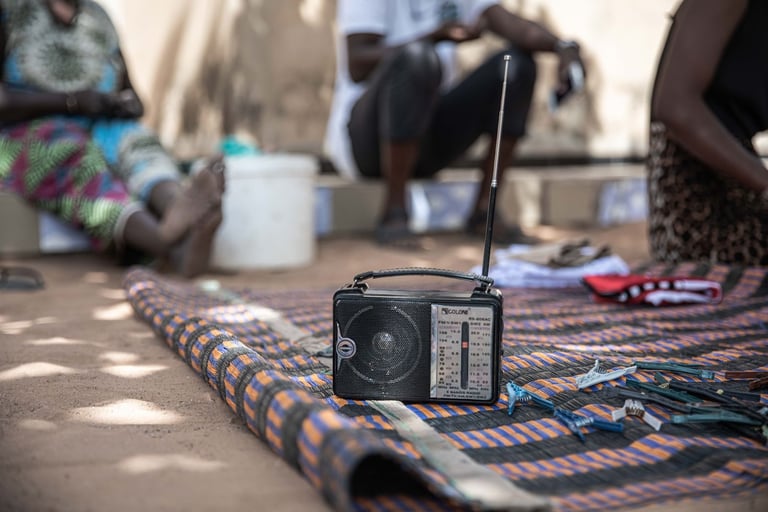

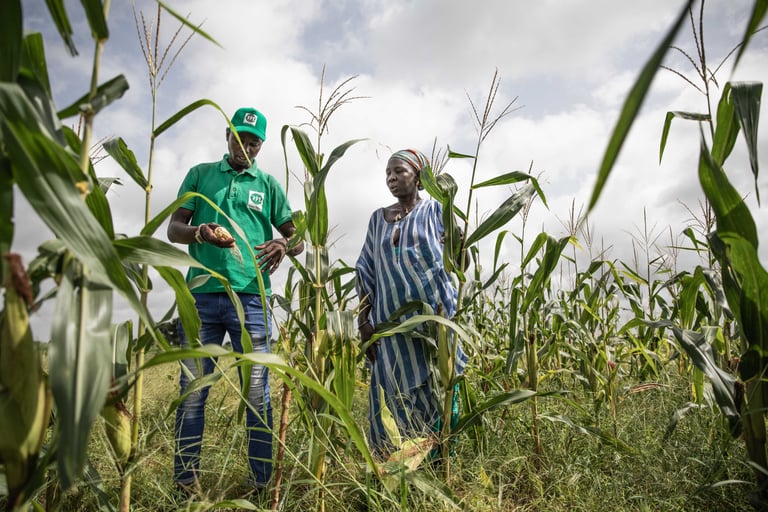

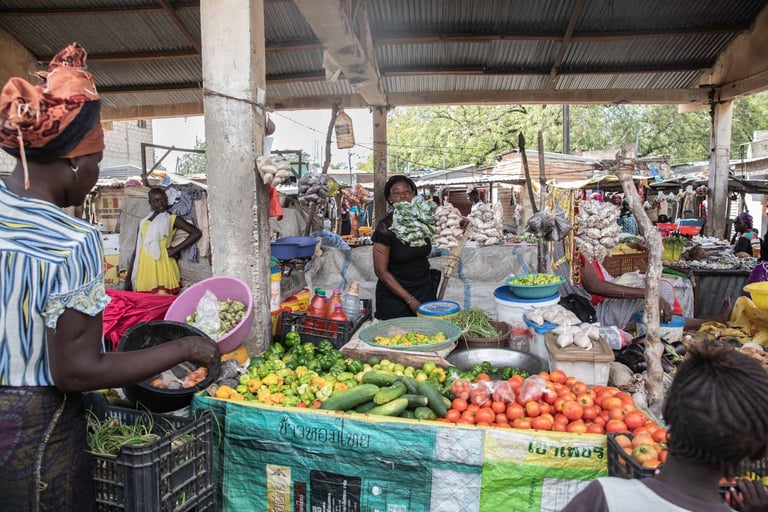

Unaware of the environmental consequences of climate change, Fanta maintained hope for several years. She anticipated that in the upcoming seasons, the rains would revert to their usual patterns, revitalizing the land for bountiful harvests. However, the stark reality contradicted her expectations. Climate change had severely disrupted the ecosystem on which she depended. Over the past decade, there had been consistently reduced rainfall, leading to the gradual drying out of Fanta's land and diminishing her access to food.
While Fanta began noticing changes over the past decade, it was only three years ago that she observed a substantial shift in weather patterns. Her family, once owners of three hectares of land, could traditionally produce enough food to sustain them until the next farming season. Unfortunately, the current situation has forced Fanta and her family to scale down their cultivation to just half a hectare, resulting in a yield of only one bag of groundnuts.
Alongside grappling with the impacts of climate change, Fanta finds herself facing additional challenges on the home front. Her husband, who was once the pillar overseeing the fields, has fallen ill, and his health has been on a decline for the past two years. Fanta opens up, saying, "I now find myself as the sole caretaker of the family."
Fanta also runs her own boutique in the village, a venture she initiated thirteen years ago. Currently, however, the boutique struggles to generate sufficient income, making it an unreliable source of financial support. This, coupled with the challenges of low crop yields, leaves Fanta without the necessary funds to maintain a diverse stock and offer a wide range of goods.
Unable to produce an adequate amount of food, Fanta emphasizes that the current challenge is financial. The scarcity of rainfall is depleting the soil of essential chemical, physical, and biological activities crucial for plant and soil health. Consequently, Fanta finds herself needing more money each year to cover the cost of food that she used to be able to grow herself. However, purchasing enough food is increasingly challenging, especially with rising costs due to global price increases. Fanta states, "It's difficult to put food on the table. I don't want my children to go through what I have been through, that's why I work hard."
Recognizing the crucial need for income to support her family's well-being, Fanta has expanded her business activities, focusing on the markets to increase her earnings. These markets, predominantly operated by women, are commonly situated alongside highways connecting cities. Similar to Fanta, many women undertake extensive journeys from their villages to access these markets, relying on irregular transportation methods.
The market hosts various activities where women engage in different roles. Some women gather imported produce from various regions within the country and sell them at rented stalls. Others purchase goods in bulk from the market, engaging in trading to make a profit. Additional activities involve deshelling groundnuts, chopping onions, or scaling fish.
Presently, Fanta engages in trading goods at the market three times a week. Any remaining items are brought back to be sold at her village boutique. Fanta undertakes these efforts with the sole purpose of securing a brighter and more stable future for her children. She expressed, "Even if I'm sick, I still get up and have to work."
In Fanta's village, everyone tunes in to local radio station for weather forecast. These forecasts hold great significance for the farming community, especially as planting time approaches. The recommendations provided are valuable in fostering discussions about determining the optimal time for planting. Fanta emphasized, "Knowing when to plant is crucial."
Fanta and her community hoped for more rain this season, anticipating a longer growing season and increased yields. However, concerns about "cëbo" or "false rain" stirred confusion. False rain indicates a prolonged period between initial rain hints and the actual start of the rainy season, risking early-planted seeds drying out. Climate-informed producers, like myArgo, offer treated seeds providing 45 days of protection if rain is delayed after planting, benefiting farmers like Fanta who rely on such measures for crop security in unpredictable weather.
Fanta and fellow farmers in her village are now delving into the use of fertilizer alongside optimizing planting times. Her daughter, Khoudia, attended an agricultural training by myAgro, learning about microdosing fertilizer for climate-smart agriculture. Khoudia shared that high-quality fertilizers, applied in small doses with natural compost, enhance soil fertility. Intrigued by these insights and myAgro's layaway model, enabling gradual payments without loans, Fanta decided to enroll. Having seen the adverse effects of uncertified fertilizers causing "fertilizer burn" in other farmers' crops, Fanta now trusts myAgro's approach for a reliable and sustainable solution.
Upon receiving her myAgro package, Fanta chose to plant corn on the same half-hectare where groundnuts were previously cultivated. This time, she employed the certified fertilizer from myAgro, feeling more at ease with its quality. However, cautious about potential fertilizer burn, Fanta opted to reduce the recommended amount as a test. To promote growth, she diligently prepared the land by thorough tilling and the application of ample compost. Fanta's careful approach reflects her commitment to exploring new practices while ensuring the well-being of her crops.
Following the use of myAgro's fertilizer, Fanta noticed a significant improvement in her land's fertility. Expressing satisfaction, she remarked, "It's the first time I used fertilizer because myAgro came and explained. If I knew it was going to be this good, I would have planted more! I am getting two more packages next year. It's good quality corn. Next year it will all be corn; I have more than three hectares of land."
Fanta shared her relief about the promising future her harvest could bring, particularly for her daughters, who have embraced farming. Educating them in agricultural practices, she envisions a fair and peaceful life for them in agriculture, rekindling hope for the generations to come.
Amadou Diouldi Sané, a myAgro agricultural agent, visited Fanta to assess her harvest, emphasizing the organization's commitment to follow-ups. Despite Fanta's reduced fertilizer micro-dosage, her corn yield increased significantly to three and a half bags compared to the previous year's one bag of groundnuts. This success bolstered Fanta's trust in myAgro's inputs, and she appreciates the organization's attentive support. Encouraged by her first attempt at applying myAgro's agricultural training, Fanta plans to utilize her newly acquired skills more effectively next year, intending to expand her planting efforts based on her enhanced confidence and successful outcomes.
Fanta Wilane is among the 33 million smallholder farmers in Africagrappling with the frontline challenges of climate change. Limited awareness of the root causes of climate variability, coupled with insufficient funding for reliable information sharing, hinders farmers in implementing vital adaptation solutions. Operating traditionally, many farmers face escalating hunger as climate change effects intensify. UN Secretary-General Guterres warns, “Greenhouse gas emissions keep growing, global temperatures keep rising, and our planet is fast approaching tipping points that will make climate chaos irreversible,”at the COP27 summit. myAgro's financial savings solution empowers farmers to address climate and food security challenges, emphasizing the need for collaborative, international efforts.
